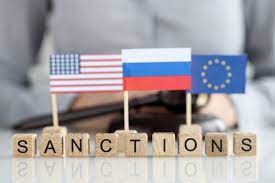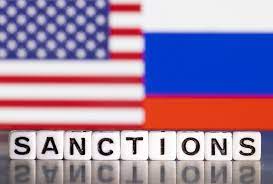United States Announces Sweeping New Sanctions Against Russia

Alex Cotoia, Regulatory Manager at The Volkov Law Group, rejoins us for another important post on new Russian sanctions. Alex can be reached at [email protected].
On February 24, 2023—the first anniversary of the Russian Federation’s Ukraine incursion—the United States Department of the Treasury’s Office of Foreign Assets Control (“OFAC”) and the Department of Commerce’s Bureau of Industry and Security (“BIS”) announced a sweeping new set of sanctions aimed squarely at further degrading the Putin regime’s ability to wage offensive military operations.
Foremost among these new sanctions are restrictions directed at the Russian metals and mining sectors. Acting pursuant to Executive Order 14024, OFAC has now specifically designated the metals and mining industry as a target of current and future sanctions activity. As new OFAC FAQ 1115 makes clear, the term “metals and mining sector of the Russian Federation economy” is intentionally expansive, and includes any “act, process, or industry of extracting, at the surface or underground, ores, coal, precious stones, or any other minerals or geological materials in the Russian Federation, or any act of procuring, processing, manufacturing, or refining such geological materials, or transporting them to, from, or within the Russian Federation.” The issuance of the latest OFAC determination is an almost certain indicator that OFAC will be targeting the metals and mining industry for more aggressive future sanctions activity. OFAC’s latest determination also serves as a warning to U.S. Persons conducting business with entities having ties to the Russian metals and mining sector. For such organizations, heightened due diligence is now required to ensure adherence to sanctions regulations.
In addition to the issuance of the new determination, OFAC has designated twenty-two (22) individuals and eight-three (83) entities for inclusion on OFAC’s List of Specially Designated Nationals and Blocked Persons (“SDN List”). Among other things, OFAC’s latest designations are targeted at the most notorious institutional and individual sanctions evaders including, but not limited to, financial institutions, wealth management entities, arms dealers, and other third party proxies implicated by the United States in systematic efforts to undermine international sanctions activity. Consequently, the updated list now includes Credit Bank of Moscow Public Joint Stock Company, the Russian Federation’s largest non-state public bank, which was officially removed by the European Union from accessing the SWIFT international payment system in June 2022. Additional SDN designations include Public Joint Stock Company MTS Bank, with a presence in both the Russian Federation and the United Arab Emirates, and multiple Swiss and Malta-based individuals and entities known to have materially assisted the Russian Federation government in procuring western technology and equipment in spite of current sanctions regulations.

Other notable additions to the SDN List include carbon fiber giant UMATEX Joint-Stock Company, and a plethora of other entities and institutions known to operate in the Russian Federation electronics, aerospace, and defense and related materiel sectors. Finally, OFAC designated a total of four (4) entities in connection with its preliminary metals and mining determination—namely, Joint Stock Company Burevestnik Central Scientific Research Institute, OOO Metallurg-Tulamash, TPZ-Rondol OOO, and Mtsenskprokat, each of which is known to manufacture and/or produce metals and various alloys for use in connection with Russia’s aviation and defense industries.
In connection with the designation of additional financial institutions as subject to sanctions, OFAC also issued/revised a number of general licenses that authorize the wind-down of certain transactions involving those institutions through May 25, 2023 (see OFAC General Licenses 60 and 61) and the processing of certain energy-related transactions (see OFAC General License 8F). OFAC also issued General License 13D, which permits the payment of taxes, fees, and import duties, as well as the purchase and receipt of permits, licenses, registrations and certifications otherwise prohibited by OFAC Directive 4 issued pursuant to Executive Order 14024. Notably, however, General License 13D applies only to transactions “ordinarily incident and necessary to the day-to-day operations in the Russian Federation” of U.S. Persons and entities through June 6, 2023 and specifically excludes the payment of any “exit tax” owed by institutions prior to the divestment of assets located in the Russian Federation (see OFAC FAQ 1118).
On the same date that OFAC announced its sanctions activity, BIS announced the promulgation of two (2) new rules aimed at further impeding Russia’s ability to acquire U.S.-origin commodities and related technology. Under the first of the rules, titled “Implementation of Additional Sanctions Against Russia and Belarus Under the Export Administration Regulations (EAR) and Refinements to Existing Controls,” BIS has significantly expanded industry-specific export controls that further constrain the ability of Russian and Belarusian individuals and entities to acquire commodities and technology used in oil and gas production, commercial and industrial activities, and the manufacture of chemical and biological precursors. In addition, the new rule expands luxury goods prohibitions to better align existing export controls with those maintained on a multilateral basis by key U.S. allies. Accordingly, the new rule adds approximately two hundred seventy six (276) additional commodities subject to the current licensing requirement for goods exported, reexported to, or transferred within, Russia and Belarus. These items include even seemingly innocuous consumer commodities like air conditioners, refrigerators/freezers, and common cooking appliances, among other things. All applications made to export such items to Russia or Belarus are currently subject to a policy of denial.

BIS also announced new restrictions concerning the export of commodities and technology used to manufacture unmanned aerial vehicles (“UAVs”) by the Islamic Republic of Iran. in response to the utilization of Iranian-origin UAV technology by Russian Federation forces in the current Ukraine invasion, BIS has designated a specific subset of EAR99 items (now designated in new Supplement No. 7 to Part 746 of the EAR) for which a license is required when destined for Iran, regardless of whether a U.S. Person is involved in the transaction. These items include aircraft spark-ignition reciprocating or rotary internal combustion piston engines, compression-ignition internal combustion piston engines, and parts for such engines, along with computerized processing units, radio navigational apparatuses, tantalum capacitors, processors, controls, memories, amplifiers, and other electronic integrated circuits that could be used to manufacture and disseminate additional UAV technology to Russian forces. In a similar vein, the new rule also expands the scope of current Foreign Direct Product (“FDP”) restrictions to encompass items produced abroad when destined for Iran. Accordingly, the new Iran FDP rule establishes EAR jurisdiction over foreign produced items that are the direct product of U.S.-origin software or technology enumerated in Categories 3 through 5 and 7 of the Commerce Control List (“CCL”).
Finally, BIS added eighty-six (86) distinct entities to its Entity List for a variety of reasons related to support of Russia’s defense-industrial sector and continuing war effort. While most of the entities added to the Entity List are physically located in Russia, BIS also targeted several entities based in China, Canada, France, Luxembourg and the Netherlands for inclusion on the list. Notably, seventy-six (76) of these entities have been designated as “Russian/Belarusian Military End Users”—a designation that further frustrates their ability to acquire virtually any commodities subject to the EAR.
Collectively, recent actions taken by the U.S. government are designed to reinforce the notion that the Russian Federation will continue to pay a heavy price for sustained military operations in Ukraine. While they fall short of a full-scale embargo, the punitive nature of the incremental measures adopted by OFAC and BIS should serve as a prescient reminder to the Putin regime that the United States and its allies will never countenance its efforts at territorial conquest.















